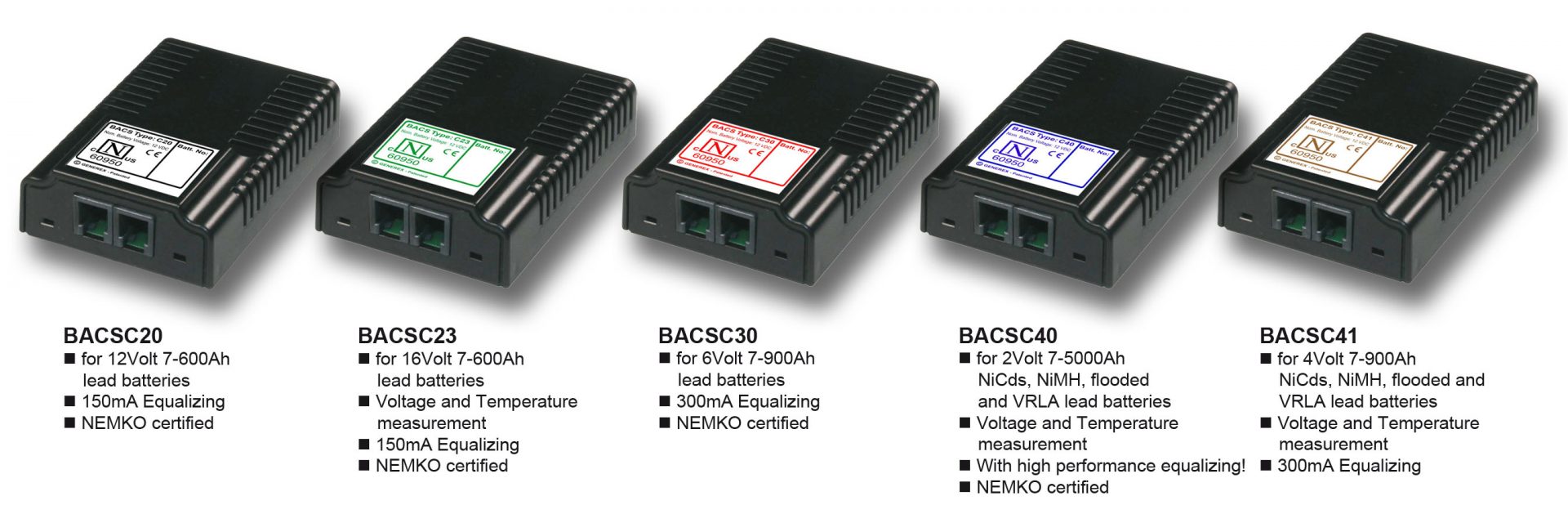BACS Modules
BACS modules: The local control elements
The BACS battery modules are not stand-alone units, but are rather the executing systems that handle the continuous monitoring of the individual battery blocks within a BACS system. BACS is not, however, limited to collecting and displaying the data collected about the voltage, temperature and interior
resistance:
With the help of our unique and protected equalizing technology, the individual status of each battery is then analyzed and supplied with the respective,
optimum charging current, which not only protects the batteries and optimizes performance, it also increases the efficiency of the entire system.
Open in the catalogue
Downloads
For which batteries can BACS be used?
BACS modules are available in a wide range of variants. They are suitable for all lead-based batteries and 7-5000Ah. The BACS technology is also compatible with any battery technologies on the market.
How it works
A UPS generally executes the charging process based on the least charged batteries as they ultimately define the performance capacity of all batteries. Since all batteries are linked in series, the UPS has difficulty determining which battery requires the
maximum charging current and which battery is already fully charged.
Without BACS, this charging current has to be taken in and transferred by all batteries throughout the entire charging process, regardless of the existing individual charging status. That means the UPS has to provide more output than actually required and the batteries take in more energy than they can handle.
Since the energy has to go somewhere, it is converted into, among other things, heat which, in the
mediumterm, permanently damages the internal
battery chemistry. This is where the BACS modules intervene in the charging process and open a bypass that conducts the excess energy around the battery which relieves the charger of the UPS:
The charging current is conducted to exactly where it is needed. The UPS itself thus operates more efficiently and the batteries are actively protected against
damage due to overloads.

